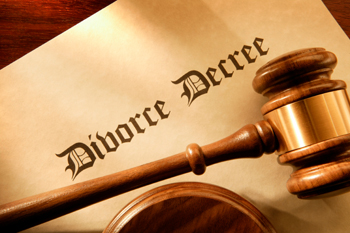 Jeddah, Jan 6: New personal status regulations for divorce, custody and alimony cases will come into effect Feb. 26, Al-Watan daily reported Saturday quoting Ministry of Justice sources.
Jeddah, Jan 6: New personal status regulations for divorce, custody and alimony cases will come into effect Feb. 26, Al-Watan daily reported Saturday quoting Ministry of Justice sources.
The regulations will be enforced by all courts in the Kingdom and will help grant families more security and independence, sources said, adding that they will also reduce the negative effects of divorce on children.
In the new regulations, a husband who refuses to pay alimony to his divorced wife for three months will be ordered by the court to pay it.
If he still refuses to pay it, the judge will order that it be deducted from his salary. The regulations will organize child visits for divorced parents and stipulate new mechanisms for alimony.
The regulations will not force a woman to return to her husband’s house even if the court orders her to do so under the provision of Bayt Al-Taah (obedience to husband).
The provision allows a husband to file a case against his estranged wife in the court. The husband, whose wife does not want to return home, can under this provision request the judge to order her to return and live with him.
Under the new regulations, women will not be required to return to their husbands’ houses if they do not want to. These regulations seek to grant women more rights.
Meanwhile, Al-Watan obtained a copy of an official report showing the number of divorce, marriage annulment and similar cases that the general courts around the Kingdom looked into over the past 24 days of this Hijri month.
Riyadh General Court reviewed 14 divorce cases, 102 marriage annulment cases, 28 child visit cases, 91 custody cases, 93 alimony cases, and 36 Bayt Al-Taah cases.
Makkah General Court looked into 12 divorce cases, 66 marriage annulment cases, 11 child visit cases, 33 custody cases, 30 alimony cases, and 25 Bayt Al-Taah cases.
Jeddah General Court looked into 20 divorce cases, 91 marriage annulment cases, 41 child visit cases, 47 custody cases, 76 alimony cases, and 40 Bayt Al-Taah cases.
Dammam General Court looked into six divorce cases, 16 marriage annulment cases, four child visit cases, nine custody cases, 13 alimony cases, and nine Bayt Al-Taah cases.
Taif General Court looked into six divorce cases, 17 marriage annulment cases, three child visit cases, six custody cases, 14 alimony cases, and five Bayt Al-Taah cases.






Comments
Add new comment